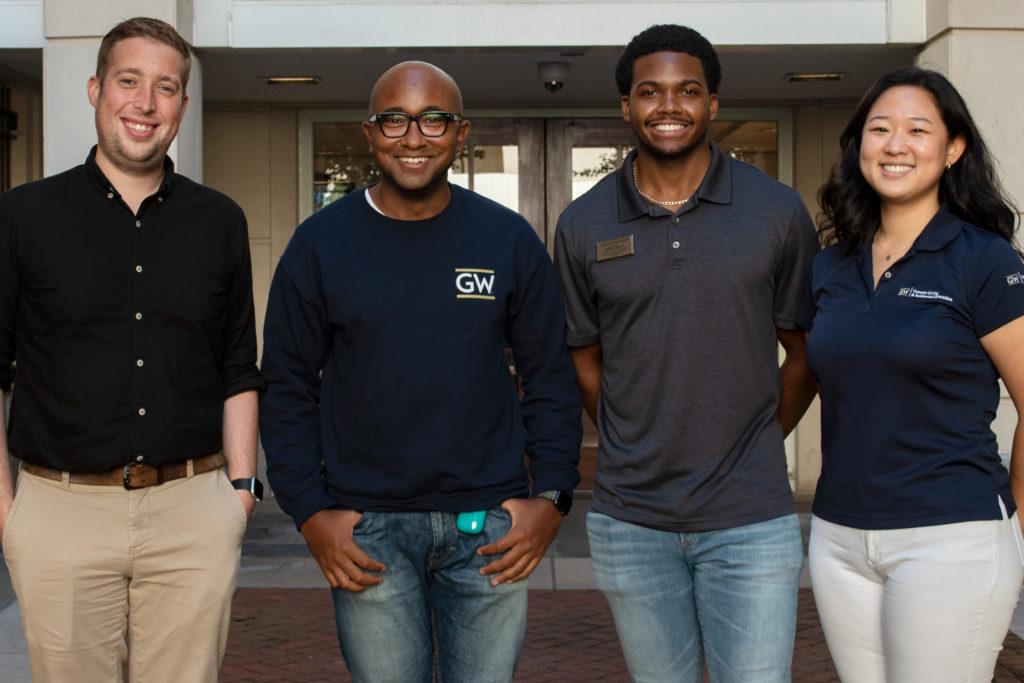This fall marks the University’s first semester with community coordinators living in residence halls in place of resident advisers – a transition that students say has been slow to rebuild community between residents returning to campus.
For the first time in recent memory, residence halls will lack RAs after officials eliminated the position, substituting the program with a rollout of new student employment positions and assigning one residential staff member per residence hall to handle RAs’ previous responsibilities. More than 10 students said although the community coordinators living in residence halls have focused on student outreach, campus residents have struggled to revive the same connections they once forged with RAs in the past.
Stewart Robinette, the assistant dean of students, said 25 community coordinators work and live in residence halls across campus, in addition to two Fraternity and Sorority area coordinators who moved onto campus in late June and early July. He said learning about the University and “creating a welcoming environment” during the COVID-19 pandemic have been the most significant challenges for community coordinators so far, but officials have received positive feedback from students about the new staff members.
“We have received very positive feedback,” he said in an email. “We are finding that students especially appreciate that our staff members are able to resolve issues or provide answers in the moment, rather than having to pass them onto someone else.”
Robinette said residential staff have handled students’ conflicts, college transition issues and “after hour needs,” advised student organizations and assisted students isolating because of the coronavirus. He said community coordinators’ responsibilities have also included managing the move-in process, orientation activities and community-building social events at newly created residential “neighborhoods” featuring their own “hub” staffed by members of the Campus Living and Residential Education team.
Robinette said the neighborhood model, designed to support and foster community among students, will feature East Commons Neighborhood Hub in Potomac House, North Village Neighborhood Hub in District House, South Square Neighborhood in Shenkman Hall, West Way Neighborhood Hub in Amsterdam Hall and the Mount Vernon Campus Hub at the Vern’s Academic Building. He said the hubs opened earlier this month, operating from 4 p.m. to midnight and offering students a range of miscellaneous resources, including blue carts, masks, Band-Aids, chargers, games and more.
Robinette said the CLRE team will add a hub at each neighborhood by the end of the year.
“Once these open, you’ll never be far from an area to get assistance in making your experience of living at GW the best it possibly can be,” he said.
Jessie Lee, the community coordinator for Madison Hall, said her daily responsibilities include answering students’ questions through email or over the phone and connecting with students walking through the residence halls. She said although her office is located in Amsterdam Hall, she tries to make time to walk through Madison Hall to meet with students face to face and ensure they know where they can find her for help.
“Something that all of our community coordinators do is do building walks every day,” she said. “And that is a way for us to not only check up and make sure our building is functioning properly, but also to build community with our students and give some face time with our students within our own buildings as well.”
She said building trust and communication between staff and students has become a large part of her job.
“I try to take some time to just hear a little bit about what their extracurricular activities are, what are they passionate about, what kind of programs and events do they want to see in the buildings, so that we can make sure that we’re kind of catering towards the population that we have,” she said.
Clare Fritsch, a freshman living in JBKO Hall, said she has never talked to her community coordinator since moving in at the start of the semester. She said her community coordinator hosted a donut social for students during her first week on campus, but she did not feel an opportunity to connect with her coordinator.
She said her community coordinator sends out emails to students each week, but she does not connect with her outside of her weekly email communications with residents.
“She hosted a donut thing, and she was just handing out donuts,” she said. “She wasn’t really talking to us.”
Pietro De Ferrari, a sophomore living in District House, said while he sees community coordinators reaching out to students through regular emails, his interaction with community coordinators remains minimal.
He said community coordinators struggled to host events during orientation week because of safety concerns due to the coronavirus pandemic, which might have deterred residents from joining an ice cream social event held in a large common room filled with students.
“I’ve seen people in line down here in the District basement, and that is the most I’ve interacted with them,” De Ferrari said. “I know nearly nothing about them.”
Jillian Noble, a sophomore living in District House, said she “loves” her two community coordinators, who have been helpful answering questions and making her feel welcome in her residence hall throughout the semester. She said her community coordinators were responsive via email to issues she faced during move-in day.
Noble said she felt welcome during the District House ice cream social that was held during move-in week, where the community coordinators tried to connect students to meet one another and settle into their new home.
“They were really trying to get us involved – our response was probably not reflective of their actions, but I think they definitely were trying as hard as they could to make us feel comfortable and welcomed in the community,” she said.








